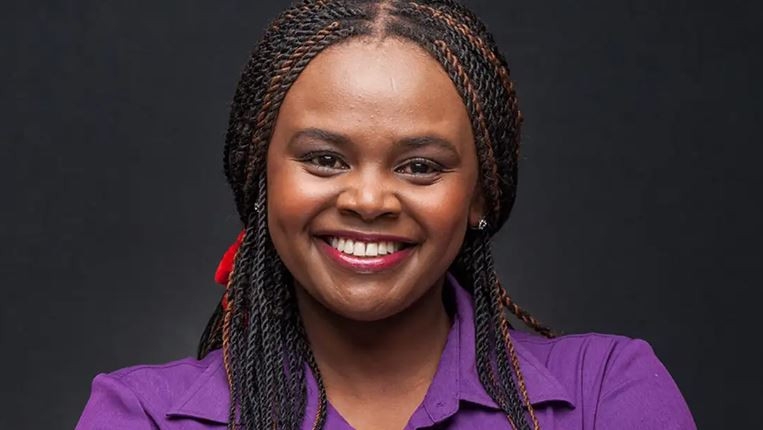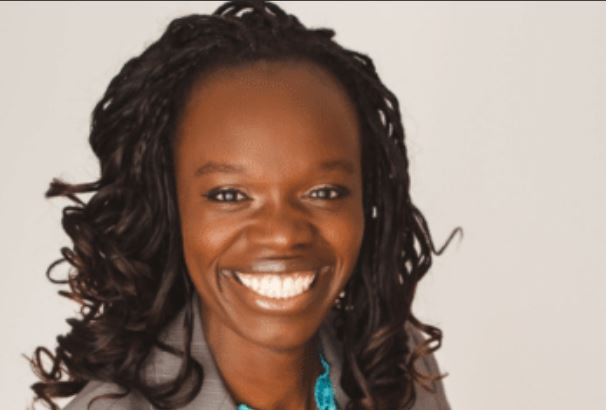 When Psychiatrist Dr Catherine Syengo Mutisya decided to leave mainstream medicine for psychiatry, some of the people around her asked her why she wanted to work with "mad people". SILVIA WAKHISI followed her into her world to find out what inspired her to work with the mentally ill.
When Psychiatrist Dr Catherine Syengo Mutisya decided to leave mainstream medicine for psychiatry, some of the people around her asked her why she wanted to work with "mad people". SILVIA WAKHISI followed her into her world to find out what inspired her to work with the mentally ill.
For any family, having to take care of a loved one who is suffering from a mental illness can be a devastating affair. Many will easily give up on them because of the difficulties they have to put up with trying to ensure they live a normal life and accord them the best care.
But having come face to face with this harsh reality, Dr Catherine Syengo Mutisya purposed from a young age that she will devote her life to taking care of people with mental illness, help them get back on their feet and lead a normal life.
"I grew up as the youngest of five children. My upbringing was a very regular, middle class one. My father was a teacher and my mother was into business," she says. "One of my brothers had intellectual disability. He was more of the 'baby' and needed all the care and attention. I am told he got sick and contracted pneumonia. My parents had to struggle to bring him up. He is now 42," says Catherine.
In addition, one of Catherine's uncles was diagnosed with schizophrenia, a mental disorder often characterised by abnormal social behavior and failure to recognise what is real.
"I grew up seeing my uncle become psychotic. Since his wife was not able to handle him, my dad would bring him to stay with us as he sought proper medical care for him. He would often wake up early in the morning to travel from Kitui and take him to Machakos General Hospital, which is now Machakos Level 5, since it was the nearest facility that offered psychiatric services," she says.
Though she was a little girl then, these experiences sparked in her the zeal to one day offer assistance to others who suffered the same fate.
It's no wonder then that when Catherine talks about her brother, which is often, she speaks with warm affection.
Born and raised in Kitui, Catherine, now 39, has risen to become a formidable lady whose greatest passion has become mental health. She currently serves as the Deputy Medical Superintendent at Mathari Hospital and is one of the renowned psychiatrists in the country.
But when I meet her for the interview, Catherine doesn't strike me as typical white-coated government health official. Her smile is captivating and infectious and her warm personality easily welcomes me into her world. She is down to earth and easy to talk to.
"For someone to discover their purpose in life, they have to go through rocky patches. My journey of self-discovery wasn't plain sailing itself. It hurt me to see my brother in that condition though there was little I could do to help then. However, that experience shaped me into the woman I am today," she says.
She offers: "As I grew up, the closest I got to interacting with someone from the medical field was with my aunt, who was a nurse. When I went to high school, I discovered there was something better than just a nurse. And that's when I decided that I would take up medicine as a career."
After high school, Catherine was admitted at the University of Nairobi for a degree in Bachelor of Medicine and Surgery from 1994-2000.
"Before I embarked on my studies, I had the privilege to work as a lab assistant in a certain school back at home in Kitui. I would set up the equipment before the teacher came to take the class through an experiment. It was fun," she says, laughing.
"I also worked as a teacher for a short stint. I wanted my students to pass well considering that I had performed well in sciences. It is no surprise that my lowest subject was History and English," she says.
After her studies, Catherine did her internship at Kenyatta National Hospital between 2000-2001 then left to work at the then Mbagathi District Hospital as a Medical Officer. She then returned to Kenyatta National Hospital in 2002 to work in the same capacity.
"I felt there was something I was missing. I felt I needed to do more than just be a Medical Officer. That's when my desire to pursue a Masters in Psychiatry was fuelled," she says.
In 2003, Catherine joined the University of Nairobi for a Masters in Psychiatry.
"It was not easy. People, even some of my colleagues kept on asking me why I wanted to deal with mad people. But for me, it was more than a calling. I wanted to offer solutions for people suffering from mental illness," she says.
Her work now revolves round handling and treating patients with various forms of mental illness.
"My typical day starts at 5:30am when I wake up then go to the gym. I then drop my kids to school and head to Mathari where I perform administrative duties as well as attend to patients in the ward. I have handled patients from all walks of life, some with paranoid schizophrenia, murder cases (patients who have committed murder due to their state of health, mental retardation among others," she says.
She goes on to say that the saddest thing as far as mental health is concerned is stigma.
She says: "People do not understand that mental illness affects everyone, regardless of class. It cuts across from the educated to the uneducated, from the rich to the poor. And those who suffer or have relatives suffering from it don't want people to know. It also increases poverty. There is need to understand mental illness. If you are not able to reach your potential, adjust to stressors in life or relate well with people, that is mental illness. All in all, there is hope."
As the head of Clinical Services at Mathari, she has been able to spearhead a number of policies that strive to ensure that patients with mental illness are treated well, with dignity and accorded the right services. She has also rolled out continuous medical education forums with the staff to deepen their understanding of mental health and how best to handle the patients. She also holds several health talks on mental illness to help Kenyans develop understanding on it that it is non-communicable.
For us to fight stigma, we need to continue giving these health talks and empower people on mental illness," says Catherine.
Her greatest inspiration is when she treat patients suffering from mental illness and they recover and go back to their normal life.
"Looking back, I am happy with the path I chose and what I have done. I believe I can do more. I don't believe there is a ceiling that will stop me from reaching out to many more people," she says.
"Mental illness is not a curse. And there is no health without mental health. You can't say that you are healthy when you are not mentally healthy. But the best way to overcome it is to always remain positive and look at the sunny side of life," says Catherine.
Photo: Wilberforce Okwiri
 The Standard Group Plc is a multi-media organization with investments in media platforms spanning newspaper print
operations, television, radio broadcasting, digital and online services. The Standard Group is recognized as a
leading multi-media house in Kenya with a key influence in matters of national and international interest.
The Standard Group Plc is a multi-media organization with investments in media platforms spanning newspaper print
operations, television, radio broadcasting, digital and online services. The Standard Group is recognized as a
leading multi-media house in Kenya with a key influence in matters of national and international interest.










